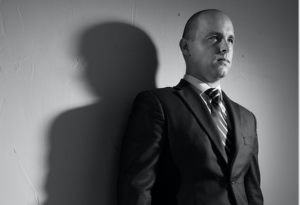Through the years, I’ve interviewed hundreds of candidates who were vying for executive, sales or other positions with some of our clients. And I’ve had hundreds more people come to me for advice when they were looking for a job or just contemplating a career change. This doesn’t include talking to lots of recent graduates who are entering the job market each year.
I usually share what I call the Five Ps of Interviewing. (Interestingly, these principles apply not only to job interviews but also to selling to a prospective client.)
Breaking it down
First, I tell people to prepare. There is no substitute for preparation, and with the internet as your tool, you have no excuses for being unprepared. Begin by researching the company. Look at the company website. Google the company name and read content about the company. Look to see if they have a LinkedIn company page and whether or not you already know some of the employees.
Also, be sure to research the person with whom you are interviewing—whether you’re the interviewer or the interviewee. Google their name and see what comes up. Look them up on social media—Facebook, Twitter, Instagram and LinkedIn. You can learn so much about people professionally and personally this way. The information you gather will help you know what to ask and, maybe more importantly, what not to ask.
Next, practice. Rehearse the interview. Role-play with someone you trust and respect. Give that person sample questions to ask you, and ask them to come up with especially hard and uncomfortable questions for you. Listen to their feedback. Videoing the mock interview will give you additional feedback on your body language, tone and the words you usually use.
Don’t put pressure on yourself. We all perform best when we are relaxed and confident. We know from communications experts that preparation reduces anxiety and stress. I remind people: You can’t lose a job (or a client) that you don’t already have now. So, don’t place undue pressure on yourself.
Be present. By that, I mean, be present in the moment. Forget whatever else is going on in your life and concentrate on the interview.
Finally, have a clear purpose. Know what you want to accomplish during the interview. How can you make a positive first impression? Be clear on what you want the person you’re interviewing with to remember about you. How do you want to be perceived? For a first interview, the purpose can be to determine if you are a fit for the position and if the position is a fit for you. During a sales call, the purpose of the interview might be to fully introduce the prospective client to you and your company and what you can do for them.
Cover all your bases
Head into an interview with each of the Five Ps of Interviewing addressed, and you will have done all you can do to set yourself up for success. Leave one or more undone, and things might not go as planned.
I’m reminded of an executive I worked with years ago who came to me wanting interview coaching for a specific executive job. He said this was his dream job, and he’d do anything to get it. He’d been wanting this job for years, waiting for the current company president to retire—and that time had come.
“I gotta get this job,” he said. “It would mean so much to me—financially, emotionally and professionally. And our family’s status in the community would skyrocket,” he added.
He was all worked up and extremely nervous and fearful he wouldn’t get the job. I tried to get him to relax, to not put too much pressure on himself. But he couldn’t give himself permission to relax. (In Emotional Intelligence terms, he wasn’t self-aware of the immense pressure he placed on himself and he couldn’t self-regulate.) He was too anxious to practice and do other preparations.
The interview, as you might have guessed, did not go well. He was totally unable to be fully present during the interview. He was uptight, and his body language gave off all the wrong signals. His answers to questions seemed staged and disingenuous. He didn’t even get a second interview.
This might very well have ended differently if he had gone in better prepared—intellectually as well as emotionally. So the next time you’re facing an interview—for a new job or a first-time job or even to sell to a new customer—remember the Five Ps of Interviewing: Prepare. Practice. Don’t put pressure on yourself. Be present in the moment, and have a clear purpose. Do that, and you’ll do what you do better.
